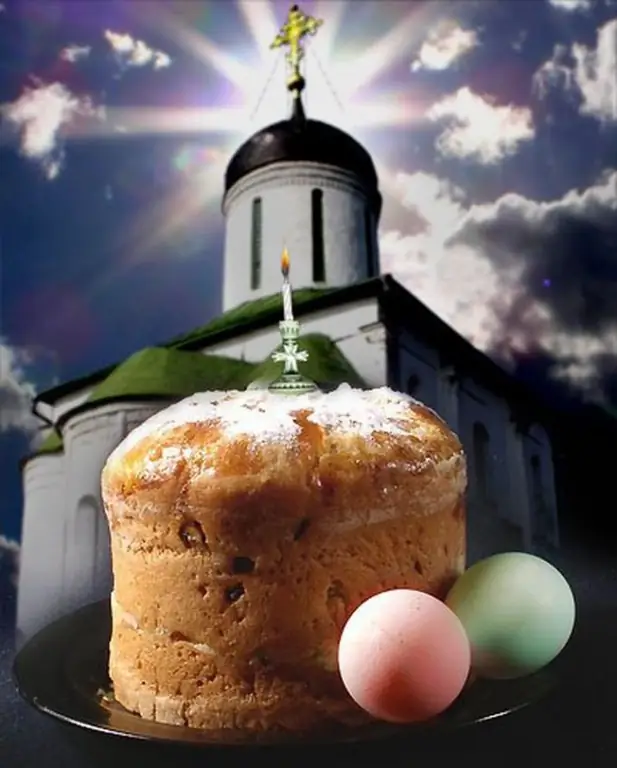- Author Antonio Harrison [email protected].
- Public 2023-12-16 07:44.
- Last modified 2025-01-22 21:44.
The tradition of celebrating Easter as the day of the resurrection from the dead of Jesus Christ goes back centuries and has different approaches to determining the date of this holiday.

The origins of the Easter tradition
A modern person in a multi-confessional society notes that even the most important Christian holiday, Easter, is celebrated on different days by Orthodox and Catholics. Differences can range from one week to one and a half months, although there are overlaps.
Historically, Christian Easter is associated with the Jewish Passover, the date of the celebration of which is fixed according to the lunisolar calendar. This is the day when the Passover lamb was to be slaughtered in the eternal memory of the miraculous deliverance of the Israeli people from Egyptian slavery, and actually from death. According to the Bible, this is the evening before the full moon of the first spring month (Leviticus 23: 5, 6).
According to the doctrine of Christians, Jesus Christ was crucified on the day of the Jewish Passover, which then fell on Friday. And the miraculous resurrection of Jesus Christ from the dead took place on Sunday, i.e. two days later.
Until the 4th century, Christians had many traditions of the date for the celebration of Easter. Easter was celebrated on the same day with the Jews, and on the Sunday following the Jewish Easter, and according to some traditions, in connection with certain astronomical calculations during early Jewish Easter until the vernal equinox, Easter was celebrated on Sunday after the full moon of the second month of spring.
The reasons for the differences in the dates of Easter between Catholics and Orthodox
Already at the I Ecumenical (Nicene) Council of 325, it was decided that Christian Easter, the day of the resurrection of Jesus Christ, should always be celebrated on the first Sunday after the spring full moon, which fell on the vernal equinox or the next full moon after it.
It was believed that directly Easter on the day of the crucifixion of Christ fell on the day after the vernal equinox (presumably April 9, 30 AD), hence the origins of the tradition. On that day, the vernal equinox was March 21 in the Julian calendar.
However, at the end of the 16th century, the Gregorian calendar was adopted by the Roman Catholic Church in Western Europe. As a result, the difference between the Julian dates adopted by the Orthodox and the dates of the Gregorian calendar differ by 13 days. Moreover, the Gregorian dates are ahead of the Julian dates.
As a result, the date of the vernal equinox on March 21, established by the First Ecumenical Council, became a different starting point for Easter for Catholics and Orthodox. And today it turns out that in 2/3 of cases the dates of Easter do not coincide among Catholics and Orthodox, in other cases, Catholic Easter is ahead of Orthodox.






